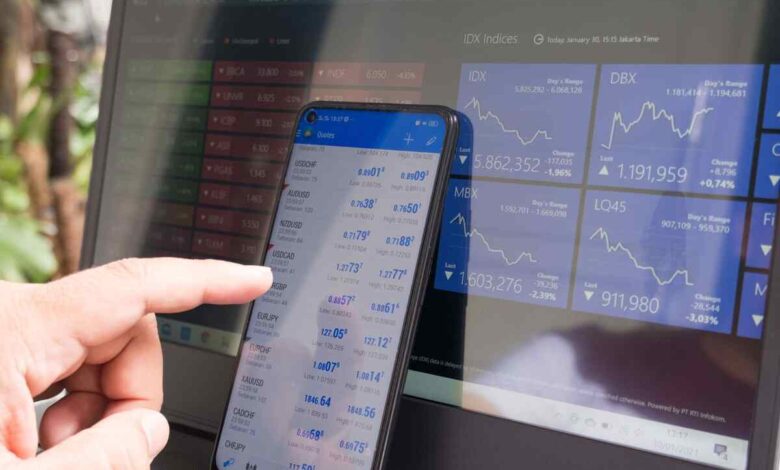
Financial Analytics Software In today’s fast-paced business environment, financial analytics software has become an indispensable tool for organizations seeking to harness the power of data to drive strategic decisions. This comprehensive guide will explore the nuances of, how it transforms financial management, and why it is essential for businesses aiming for sustainable growth.
What is Financial Analytics Software?
Specialized tools that aggregate, analyze, and present financial data in a way that enables businesses to make informed decisions. Financial Analytics Software These platforms often include features like real-time reporting, predictive analytics, and visual dashboards, allowing companies to gain deep insights into their financial health.
The Evolution of Financial Analytics
Financial analytics has evolved from simple spreadsheet-based systems to sophisticated platforms that leverage artificial intelligence (AI) and machine learning (ML). Early systems were limited by their reliance on manual data entry and static reporting. Today’s software, however, offers automation, scalability, and the ability to process vast amounts of data in real-time.
Key Features of Financial Analytics Software

When evaluating financial analytics software, it’s crucial to consider the key features that differentiate top-tier platforms from the rest. These features not only enhance functionality but also provide a significant return on investment (ROI).
1. Real-Time Financial Reporting
Real-time financial reporting is a must-have feature in any financial analytics software. This capability ensures that financial data is up-to-date, which is essential for making timely decisions. Dynamic dashboards and automated report generation allow stakeholders to monitor financial performance on demand.
2. Predictive Analytics Financial Analytics Software
This feature helps businesses anticipate market shifts, manage risks, and optimize their financial strategies. Advanced platforms use AI-driven algorithms to enhance the accuracy of these predictions, providing a competitive edge.
3. Customizable Dashboards
Customizable dashboards enable users to tailor their financial analytics interface to their specific needs. This personalization enhances user experience and ensures that the most relevant data is always at the forefront. Dashboards can often be customized to display KPIs, cash flow analysis, and other critical financial metrics.
4. Integration Capabilities Financial Analytics Software
The ability to integrate with existing systems is another crucial feature. Top seamlessly integrates with ERP systems, CRM platforms, and other business tools. This integration ensures that financial data is consistent across all platforms, reducing errors and improving overall data quality.
5. Security and Compliance
Security is paramount in financial analytics. Robust software includes features such as data encryption, user authentication, and audit trails to protect sensitive financial information. Additionally, compliance with regulations such as SOX and GDPR is essential to avoid legal penalties and maintain trust with stakeholders.
The Benefits of Financial Analytics Software

Implementing financial analytics software offers numerous benefits that extend beyond basic financial management. These benefits can transform how businesses operate, drive efficiency, and enhance profitability.
1. Improved Decision-Making
By providing real-time insights and predictive analytics, financial analytics software empowers decision-makers with the information they need to make strategic choices. This data-driven approach reduces uncertainty and enhances confidence in the decision-making process.
2. Enhanced Financial Visibility Financial Analytics Software
Provides a comprehensive view of an organization’s financial health. Through detailed reports and visual dashboards, businesses can monitor cash flow, profitability, and other key metrics with ease. This visibility is crucial for identifying areas of improvement and optimizing financial performance.
3. Cost Savings and Efficiency
Automation features within reduce the time and effort required for data entry and report generation. This efficiency translates into significant cost savings, allowing financial teams to focus on more strategic initiatives rather than manual tasks.
4. Risk Management Financial Analytics Software
The predictive capabilities of financial analytics software are invaluable for risk management. By identifying potential financial risks before they materialize, businesses can take proactive steps to mitigate these risks, ensuring long-term stability and growth.
5. Competitive Advantage
In today’s competitive market, businesses that leverage financial analytics software gain a significant advantage. The ability to make informed, data-driven decisions quickly can be the difference between leading the market and falling behind competitors.
Choosing the Right Financial Analytics Software

Selecting the right financial analytics software for your business is a critical decision that can impact your organization’s financial health for years to come.
1. Scalability
Ensure that the software can grow with your business. Scalability is essential for organizations that anticipate expansion, as it prevents the need for costly software upgrades or replacements in the future.
2. Ease of Use Financial Analytics Software
Even the most powerful analytics software can be rendered ineffective if it is too complex for users to navigate. Consider platforms that offer user training and customer support to enhance the adoption process.
3. Cost vs. Value
Look for platforms that offer a strong ROI by enhancing efficiency, improving decision-making, and reducing operational costs.
4. Vendor Reputation Financial Analytics Software
Research the software vendor’s reputation in the market. Look for customer reviews, case studies, and industry awards that validate the vendor’s credibility. A reputable vendor will also offer robust customer support and ongoing updates to keep the software current.
5. Customization and Flexibility
Every business has unique financial needs. The best financial analytics software allows for customization and flexibility to adapt to specific business requirements. Whether it’s customizing dashboards or integrating with existing systems, flexibility is key to maximizing the software’s utility.
Conclusion: Transform Your Business with Financial Analytics Software
Incorporating financial analytics software into your business operations is no longer a luxury but a necessity. The benefits of improved decision-making, enhanced visibility, cost savings, and competitive advantage make it an essential tool for any organization aiming for sustainable growth. By carefully selecting the right software and leveraging its full capabilities, businesses can unlock new levels of financial performance and strategic insight.
Visit Here: Social Media Marketing Trends




